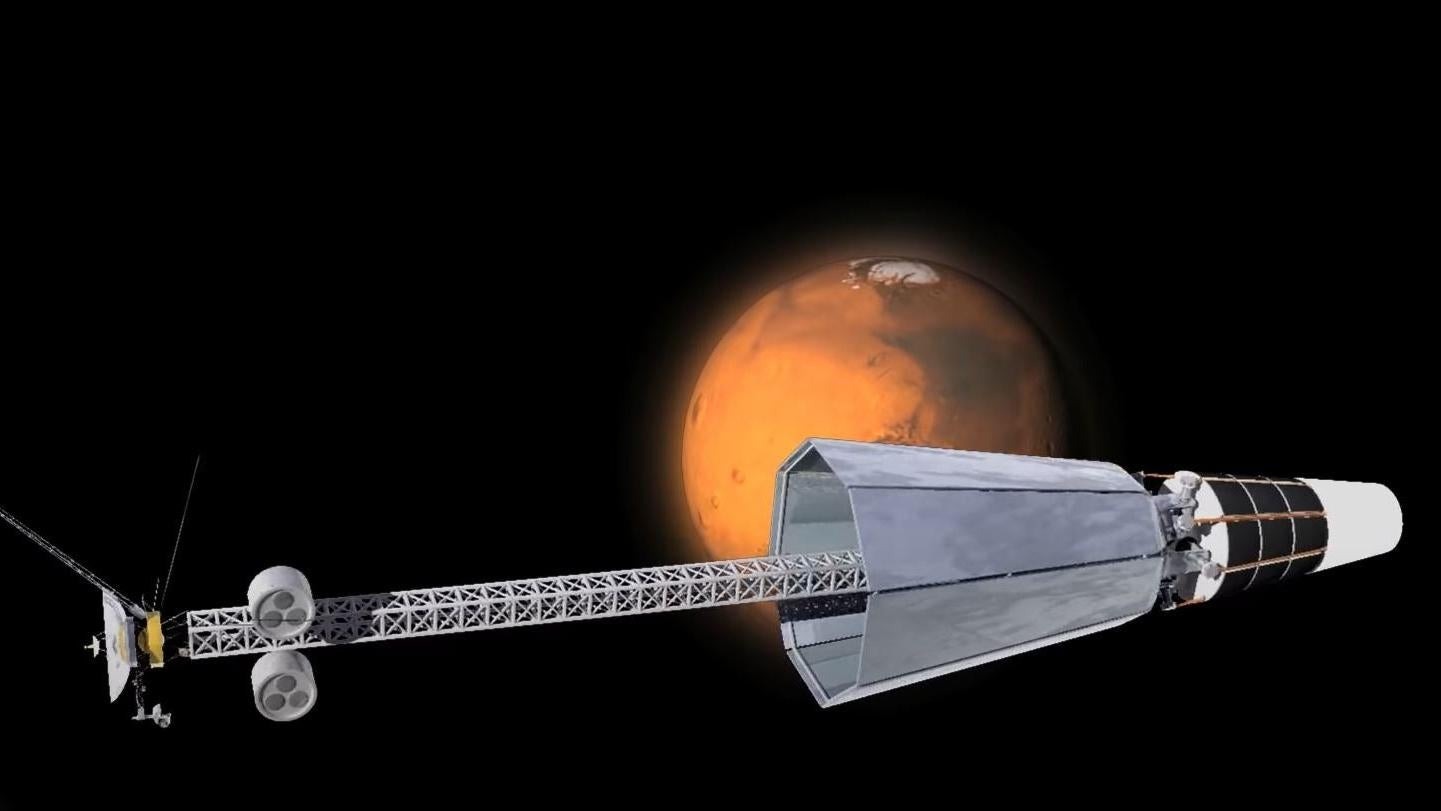Lockheed Martin has started developing a nuclear propulsion system for a new generation of spacecraft. According to Lockheed’s statement, the US Air Force Research Laboratory (AFRL) is asking the company to develop powerful nuclear technologies for power generation and propulsion and spacecraft design. For this purpose, the Pentagon has allocated $33.7 million to finance the preliminary review stage of the project under the Joint Emerging Technology Supplying On-Orbit Nuclear (JETSON) program.

Such systems can generate significantly more electricity than solar-powered spacecraft. The new propulsion system can also be used to explore deep space regions where solar panels are no longer an effective source of energy, or shadow areas near space objects that do not receive sunlight.
“The development of nuclear fission for space applications is key to enabling technologies that could radically change the way we move through and explore the vastness of space,” said Barry Miles, JETSON program manager and principal investigator at Lockheed Martin.
Lockheed Martin vs. competitors
The nuclear power plant will generate heat that will be transferred to the Stirling engines. Thus, from 6 to 20 kilowatts of electricity will be generated. According to Lockheed Martin, this is about four times more than conventional solar panels produce.
In addition to Lockheed Martin, the US Air Force has engaged Westinghouse and Intuitive Machines to develop space nuclear engines. But Lockheed received the largest amount of funding: USD 16.9 million, compared to USD 9.4 million for Westinghouse and Intuitive Machines. The contracts will last until December 2025.
In addition, Lockheed Martin is developing a nuclear rocket for long-distance space travel in cooperation with NASA and the Defense Advanced Research Projects Agency (DARPA). The test flight is scheduled for 2027, which will be part of NASA’s plans to send manned missions to Mars.
Earlier we reported on the advantages, disadvantages and prospects of ion engines.
Based on materials from lockheedmartin.com
